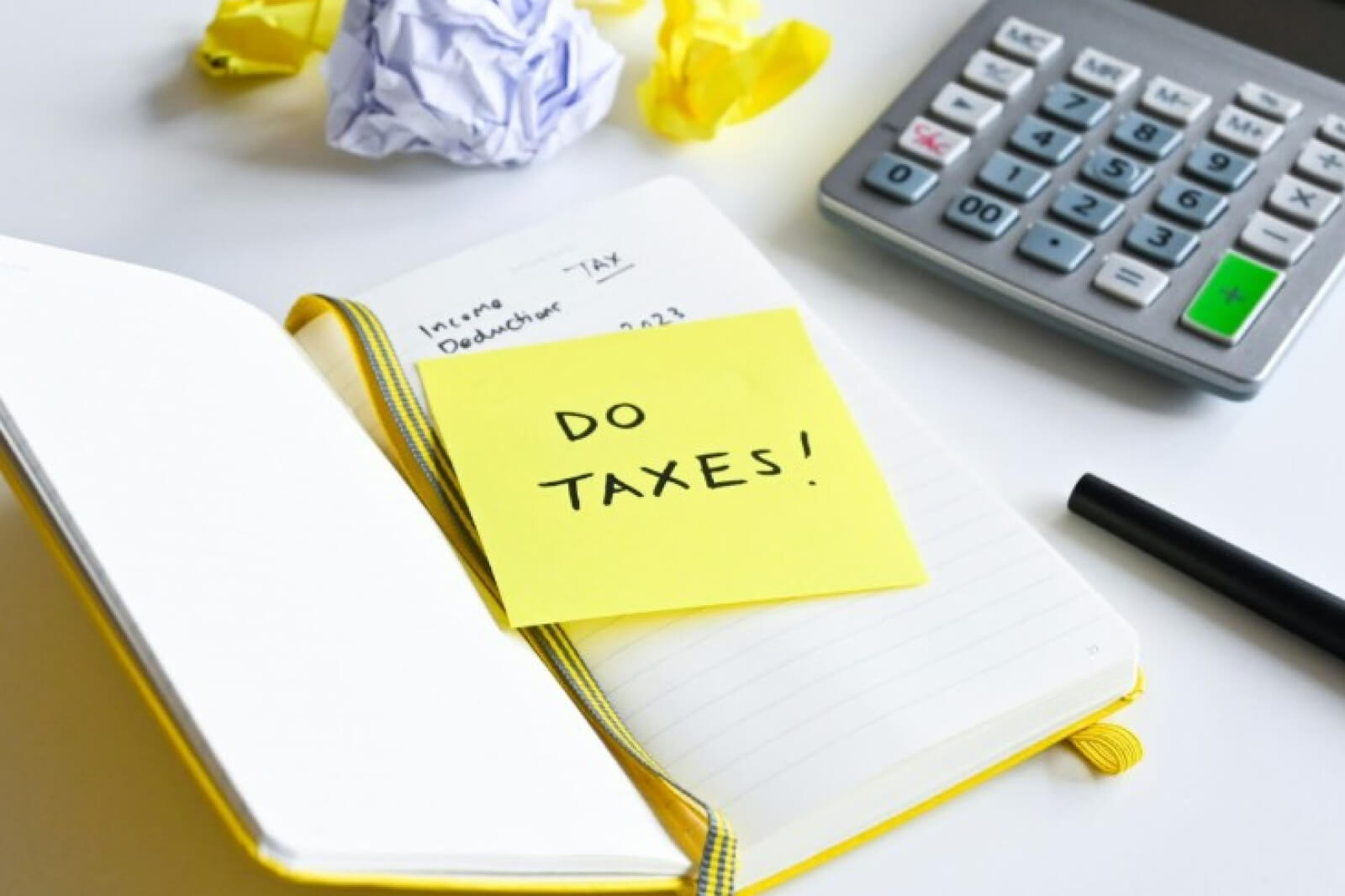Time For A 2025 Financial Reset

Dec 09 | 2024

alexander gray via unsplash
This article includes affiliate links. We may earn a commission if you make a purchase, with no extra cost to you.
As we head into a fresh New Year, you may find yourself reflecting on your financial journey over the past 12 months. Perhaps you faced unexpected challenges, from unforeseen expenses to a change in income. Or, you might simply realize that your financial habits could use a bit of a refresh.
If you’re feeling overwhelmed or uncertain about your financial future, you’re not alone. A financial reset can be a powerful way to take the reins and regain control over your future. Perhaps you’re even looking to craft some financial New Year’s resolutions to set yourself up for success in 2025.
The financial reset process isn’t merely about crunching numbers. It’s about understanding your unique financial situation and creating a goal-oriented roadmap that aligns with your personal values and aspirations. Whether you’re looking to pay off debt, save for a dream vacation, or build a more secure future for yourself and your loved ones, taking the time to reframe your personal finances can lead to greater peace of mind and confidence in your financial decisions.
Let’s explore how you can take on a 2025 financial reset and reframe your attitude regarding money as well as your habits.
Take A Good Look At Your Current Financial Situation
To know where you want to go, first you need to see where you’ve been and where you currently are. The first step in a financial reset is to thoroughly assess your current economic situation. This involves reviewing all aspects of your financial wellness, including your income, expenses, debts, and savings.
Here are a few ways to get started:
- Review your financial statements: Get a bird’s-eye view of your goings-in and goings-out. Take a close look at your bank statements, credit card statements, and any investment accounts. Understanding where your money is going will provide insights into your spending habits and help identify areas for improvement.
- Calculate your net worth: You’ve probably Googled your favorite celeb’s net worth before, but what’s yours? Your net worth refers to the difference between what you own – such as assets and savings – and what you owe – liabilities and ongoing expenses. This figure will give you a clear picture of your overall financial standing.
- Evaluate your debt: Warning: this might hurt a bit! Assess any outstanding debts, including credit cards, student loans, other loans, and mortgages. Identifying the total amount owed and all interest rates associated with these debts will help you prioritize repayment strategies (or even refinancing needs, if necessary).
Once you have a solid grasp of your current financial situation, you can make informed decisions about where to focus your efforts in 2025.
Set Clear Financial Goals
Now’s the time to set clear and achievable financial goals. Ideally, these goals should adhere to SMART standards – Specific, Measurable, Attainable, Relevant, and Time-Bound. It’s best to set short-term (a few months to a year), medium-term (several years), and long-term (10+ years or lifetime) goals.
Short-term goals might include paying off a credit card or putting money aside for a vacation.
Medium-term goals will help you and your family thrive over the next few years. Consider aspirations like saving for a down payment on a home or funding your child’s education – or even your own. It’s never too late to take that cooking course!
Finally, long-term goals will benefit you in, well, the long run. Think about retirement savings or investment strategies that will take time to flourish.
Documenting these goals will help you to strategize and provide direction and motivate you to stay on track throughout the year.
Plan Your Budget
Setting a budget may seem like an obvious step, but most people go there. A well-structured budget is integral to achieving your financial goals. A budget planner, like this one from Clever Fox, can help you track your income and expenses effectively. If you’re not into the print planner life, there are a number of smart, smartphone budgeting apps.
A budget planner or app will help you:
- Gather up all your financial information in one place, including necessary documents like bank statements, pay stubs, and receipts
- Identify all your income sources, including salaries, side hustles, and any passive income streams
- Break down your expenses into fixed (rent/mortgage, insurance) and variable (groceries, entertainment) categories
- Set spending limits for each category, based on your income and financial goals
- Monitor your progress and regularly review your budget to keep you accountable and crack the whip so you stay within limits
Educate Yourself About New Opportunities
Time to reassess your investment strategy, educate yourself, and explore fresh avenues for making and saving money. Make your money work for you in 2025!
This is a great time to consider diversifying your portfolio. Ensure that your investments are spread across different asset classes – stocks, bonds, real estate – to minimize risk. If you’re unsure of how best to invest, consider signing up for an investment advice newsletter like The Motley Fool or reading a how-to book like The Little Book of Common Sense Investing by John C. Bogle.
In fact, your end-of-year financial reset offers the perfect chance to learn about various aspects of personal finance. Commit to staying on top of emerging trends, consider taking a class in personal finance, or set up a meeting with a financial advisor to get a professional’s opinion on your money situation.
Build an Emergency Fund
An essential component of any solid financial plan is an emergency fund. This acts as a safety net during unexpected circumstances, such as job loss or medical emergencies. Think of it as a commitment to protecting yourself and your family, should the unexpected arise.
Before you start saving, it’s a good idea to set a target amount. Aim to save three to six months’ worth of your typical living expenses in your emergency fund.
Then, set up automatic automatic transfers from your checking account to that spending bucket. This makes saving easier and builds in consistency. You might consider keeping this fund in a high-yield savings account, where it can earn interest while remaining accessible should it ever be needed.
Trim the Fat
One of the easiest ways to jump-start your financial reset in 2025 is to trim hidden expenses, particularly unwanted subscriptions – we’ve all got them! These insidious recurring charges can quietly drain your budget. Start by reviewing your bank and credit card statements for any recurring charges. Tools like Truebill, Rocket Money, or Mint can help you track these expenses automatically.
Once you have a list, evaluate each subscription. Ask yourself if you’re actually using the service and if it’s giving you bang for your buck. If not, cancel – and stash that cash in your virtual wallet.
With your 2025 Financial Reset, you’ll be cruising into a smooth financial journey in the year ahead!
- Review your financial statements: Get a bird’s-eye view of your goings-in and goings-out. Take a close look at your bank statements, credit card statements, and any investment accounts. Understanding where your money is going will provide insights into your spending habits and help identify areas for improvement.
- Calculate your net worth: You’ve probably Googled your favorite celeb’s net worth before, but what’s yours? Your net worth refers to the difference between what you own - such as assets and savings - and what you owe - liabilities and ongoing expenses. This figure will give you a clear picture of your overall financial standing.
- Evaluate your debt: Warning: this might hurt a bit! Assess any outstanding debts, including credit cards, student loans, other loans, and mortgages. Identifying the total amount owed and all interest rates associated with these debts will help you prioritize repayment strategies (or even refinancing needs, if necessary).
Once you have a solid grasp of your current financial situation, you can make informed decisions about where to focus your efforts in 2025.
Set Clear Financial Goals
Now’s the time to set clear and achievable financial goals. Ideally, these goals should adhere to SMART standards - Specific, Measurable, Attainable, Relevant, and Time-Bound. It’s best to set short-term (a few months to a year), medium-term (several years), and long-term (10+ years or lifetime) goals.
Short-term goals might include paying off a credit card or putting money aside for a vacation.
Medium-term goals will help you and your family thrive over the next few years. Consider aspirations like saving for a down payment on a home or funding your child’s education - or even your own. It’s never too late to take that cooking course!
Finally, long-term goals will benefit you in, well, the long run. Think about retirement savings or investment strategies that will take time to flourish.
Documenting these goals will help you to strategize and provide direction and motivate you to stay on track throughout the year.
Plan Your Budget
Setting a budget may seem like an obvious step, but most people go there. A well-structured budget is integral to achieving your financial goals. A budget planner, like this one from Clever Fox, can help you track your income and expenses effectively. If you’re not into the print planner life, there are a number of smart, smartphone budgeting apps.
A budget planner or app will help you:
- Gather up all your financial information in one place, including necessary documents like bank statements, pay stubs, and receipts
- Identify all your income sources, including salaries, side hustles, and any passive income streams
- Break down your expenses into fixed (rent/mortgage, insurance) and variable (groceries, entertainment) categories
- Set spending limits for each category, based on your income and financial goals
- Monitor your progress and regularly review your budget to keep you accountable and crack the whip so you stay within limits
Educate Yourself About New Opportunities
Time to reassess your investment strategy, educate yourself, and explore fresh avenues for making and saving money. Make your money work for you in 2025!
This is a great time to consider diversifying your portfolio. Ensure that your investments are spread across different asset classes - stocks, bonds, real estate - to minimize risk. If you’re unsure of how best to invest, consider signing up for an investment advice newsletter like The Motley Fool or reading a how-to book like The Little Book of Common Sense Investing by John C. Bogle.
In fact, your end-of-year financial reset offers the perfect chance to learn about various aspects of personal finance. Commit to staying on top of emerging trends, consider taking a class in personal finance, or set up a meeting with a financial advisor to get a professional’s opinion on your money situation.
Build an Emergency Fund
An essential component of any solid financial plan is an emergency fund. This acts as a safety net during unexpected circumstances, such as job loss or medical emergencies. Think of it as a commitment to protecting yourself and your family, should the unexpected arise.
Before you start saving, it’s a good idea to set a target amount. Aim to save three to six months' worth of your typical living expenses in your emergency fund.
Then, set up automatic automatic transfers from your checking account to that spending bucket. This makes saving easier and builds in consistency. You might consider keeping this fund in a high-yield savings account, where it can earn interest while remaining accessible should it ever be needed.
Trim the Fat
One of the easiest ways to jump-start your financial reset in 2025 is to trim hidden expenses, particularly unwanted subscriptions - we’ve all got them! These insidious recurring charges can quietly drain your budget. Start by reviewing your bank and credit card statements for any recurring charges. Tools like Truebill, Rocket Money, or Mint can help you track these expenses automatically.
Once you have a list, evaluate each subscription. Ask yourself if you’re actually using the service and if it’s giving you bang for your buck. If not, cancel – and stash that cash in your virtual wallet.
With your 2025 Financial Reset, you’ll be cruising into a smooth financial journey in the year ahead!
"









